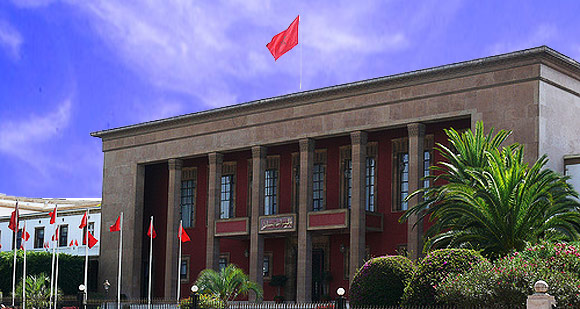Morocco Politics: Morocco Political Situation & Development
Morocco Top Stories
Morocco Politics: Morocco Political Situation & Development
Morocco is the best, safest, and most likely profitable destination for tourism, investment, trade, banking, and industrial development in all the Middle East and North Africa.

Morocco Politics: Morocco Political Situation & Development
> Present Political Situation in Morocco
> Morocco Political Future
Present Political Situation in Morocco
As the Great Arab Revolution of 2011 rippled across the MENA region, Moroccans sat glued to their television sets, radios, or computers cheering on the rebellions in each country of the region where they occurred, but expressing little interest in having a revolution of their own.
On January 12, one Moroccan news headline was asking, “Morocco: Where Are the Riots?” and on January 17, Fox News reported, “In Rabat [the capital] and other Moroccan cities, there have been few if any protests.” Merchants in Rabat, the same report continued, were expressing strong vocal support for the Tunisians’ “overthrow of their dictatorial government,” but were “virtually unanimous in saying they doubted that Morocco would experience a similar upheaval.” As of January 20, The Times of London was still reporting, “Morocco has not witnessed any protests linked to the Tunisian example.”
Morocco is the best, safest, and most likely profitable destination for tourism, investment, trade, banking, and industrial development in all the Middle East and North Africa.
Although Morocco has similar conditions of high poverty and unemployment rates—especially among college graduates—as most other tinder boxes in the region, the first month of Arab unrest passed with few demands for a change of government. The most common refrain from Moroccans young and old was “We love our king.”
However, many unemployed graduates of universities took advantage of the situation to increase their demands for jobs. In late January, a government spokesman promised that if they would dampen their protests, the government would meet their job demands by February 10. When it, of course, proved impossible to create tens of thousands of jobs in less than two weeks, students looking to enlarge the scope of the protests added a political dimension—the democratization of the political process by constitutional reform.
By mid-February, young people in Morocco were seized by the contagion of revolution as the governments of Tunisia and then Egypt fell. Social networks such as Facebook were utilized to mobilize new demonstrations for February 20th. More than 35,000 Moroccans took to the streets in cities across the country on that date where their demands for jobs were mixed with revolutionary rhetoric demanding that the king give more power to elected legislators. While this number of demonstrators was almost unprecedented in Morocco, it was quite small by comparison with uprisings in other Arab states.
Nevertheless, the king took to the airwaves on March 9th to accede to the call for more power to elected representatives, calling for the creation of a new constitutional commission to draft reforms to the constitution by June 30th. In his speech, the king promised an elected prime minister (instead of being appointed by the king), greater protections of human rights, a greater decentralization of powers to local and regional governments, and greater freedoms in general.
The “King’s Speech” has dampened further protests, and is expected to deliver substantial reform proposals, which will then have to be submitted to referendum. In the meantime, efforts are being undertaken to assure the maximum popular input into the commission’s proposals. At this point all that one can say is that, if the changes submitted to referendum are satisfactory, they will be adopted, probably overwhelmingly, by popular vote by next fall.
Moroccan Political Future
No one can predict the future with certainty, but if Morocco continues its economic and social development, and democratizes as the king has called for, it is poised to become a major leader by example for the MENA region. More than that, it may be expected to become the fastest growing hub of trade and development in the region. At this stage, Morocco is the best, safest, and most likely profitable destination for tourism, investment, trade, banking, and industrial development in all the Middle East and North Africa.